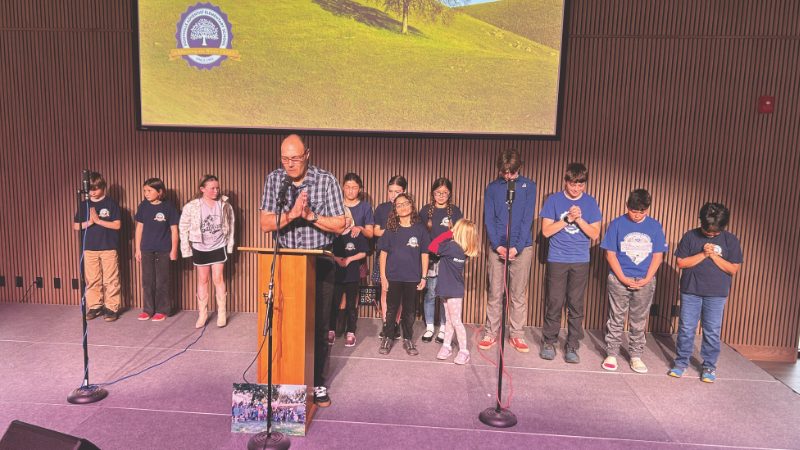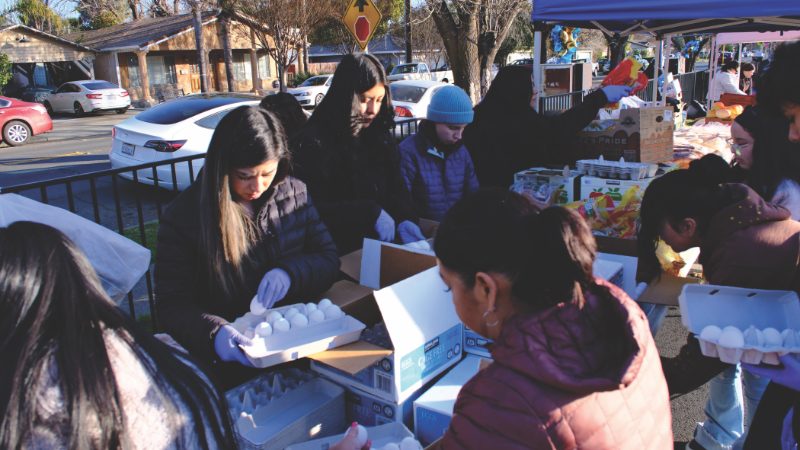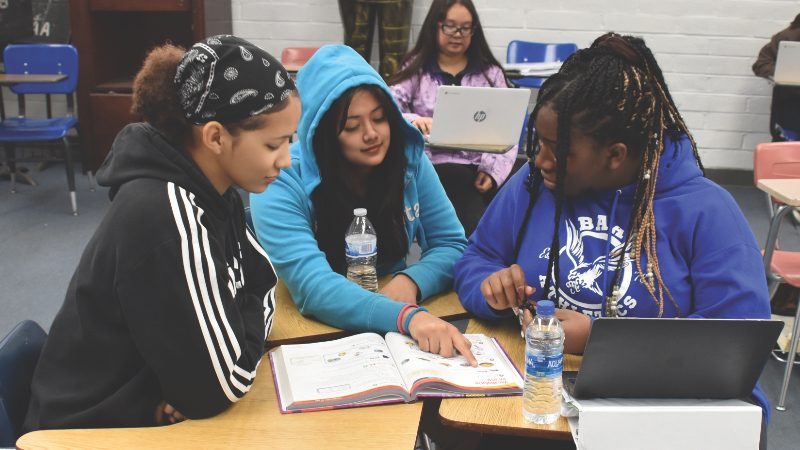
Monterey Bay Academy sent 21 students and five faculty and volunteers on a mission trip to Puerto Rico in February to share God and, as a result, learn more about God. The students and staff spent over a week cleaning up beaches, leading out in worship, and spending time with the people they had just met.

“The time that we visited Puerto Rico was just after their hurricane season. There was plenty of organic matter like seaweed, twigs, and leaves that washed up on the shores of the beaches. So, we did trash cleanup as well as organic matter cleanup,” explained Elizabeth Mendoza, Spanish and physical education teacher at Monterey Bay Academy, who organized the mission trip. “We also did some ministry work. We put on a Sabbath School and main service for the local church.”
The school volunteered alongside a mission group called Changing People’s Lives International Ministries. The group’s founder, Marcos Perez, grew up in Puerto Rico, and he is connected to the ministry there. Perez helped lead the mission trip, making it easier for the volunteers to connect with the local community and reach more people safely.
The volunteers spent most of their time cleaning up beaches near a town called Luquillo, which is on the northeast edge of Puerto Rico. There is an Adventist camp in the middle of the El Yunque National Rainforest near Luquillo, where they were able to stay during the trip.
Sofia, a senior at Monterey Bay Academy, explained a significant difference between California beaches and the beaches of other parts of the world. “I have grown up in the [California] area by the beach, and it’s a very different kind of beach. We are lucky to have a big open space here that isn’t too polluted.”
She said she was surprised by the different kinds of trash they found as they cleaned the beach in Puerto Rico. There was the typical paper and plastic trash, but then there were objects we use in our everyday lives that we don’t see as often on California beaches, such as tires, clothes, and toys.
This trip was a time for the students and staff of the academy to address a need for the people of Puerto Rico, but it was also a time to look inward and ask questions, such as how we can give and to whom. “I learned the importance of giving back and the importance of community,” explained Mendoza. “I learned the importance of using the gospel to reach people and, to me, ultimately, the gospel is love. God is love. And we have a duty to spread love.”
Mendoza believes the trip impacted the volunteers similarly. “I think they learned the importance of giving back and learning to be selfless—doing something and not expecting something in return.”
She believes this impact has spilled over even to the students who didn’t go on the trip. Students have become more involved in their community, and their community is the school. Those who went on the trip have become stronger spiritual leaders in the school, and the students who didn’t go have begun asking questions as a result. They are curious about the change that has happened on campus and how they can be part of the next mission trip.
The mission trip has increased excitement around the academy. MBA faculty have already started to plan another mission trip for the students. There is a potential trip back to Puerto Rico to work with the same ministry. “We developed good relationships with the camp where we stayed, and they felt like our kids did a fantastic job—and there is more work to do in the community,” said Mendoza. They may do more beach cleanup in the same area as well as extend to other beaches on the island. They also hope to do more ministry work in local churches.
In the meantime, this trip has made many of the volunteers realize that ministry does not require going overseas once a year or becoming a full-time missionary. “You can give back to your local community,” explained Mendoza. “And our kids learned ways they can give back to their local community, whether it’s doing community service work at a local church, or participating in a vacation Bible school, or volunteering at a food bank—there is plenty of work that people can do.”
____________________
By Brennan Hallock







